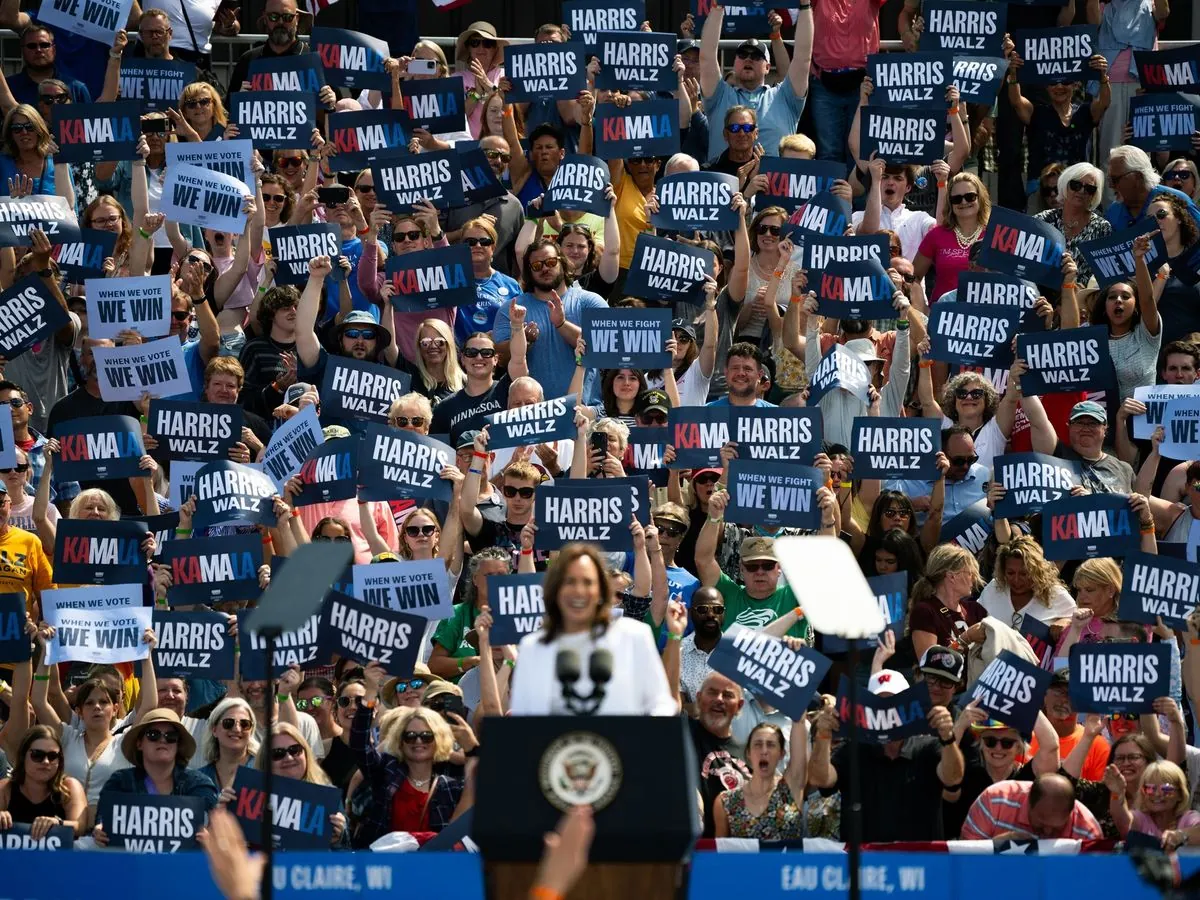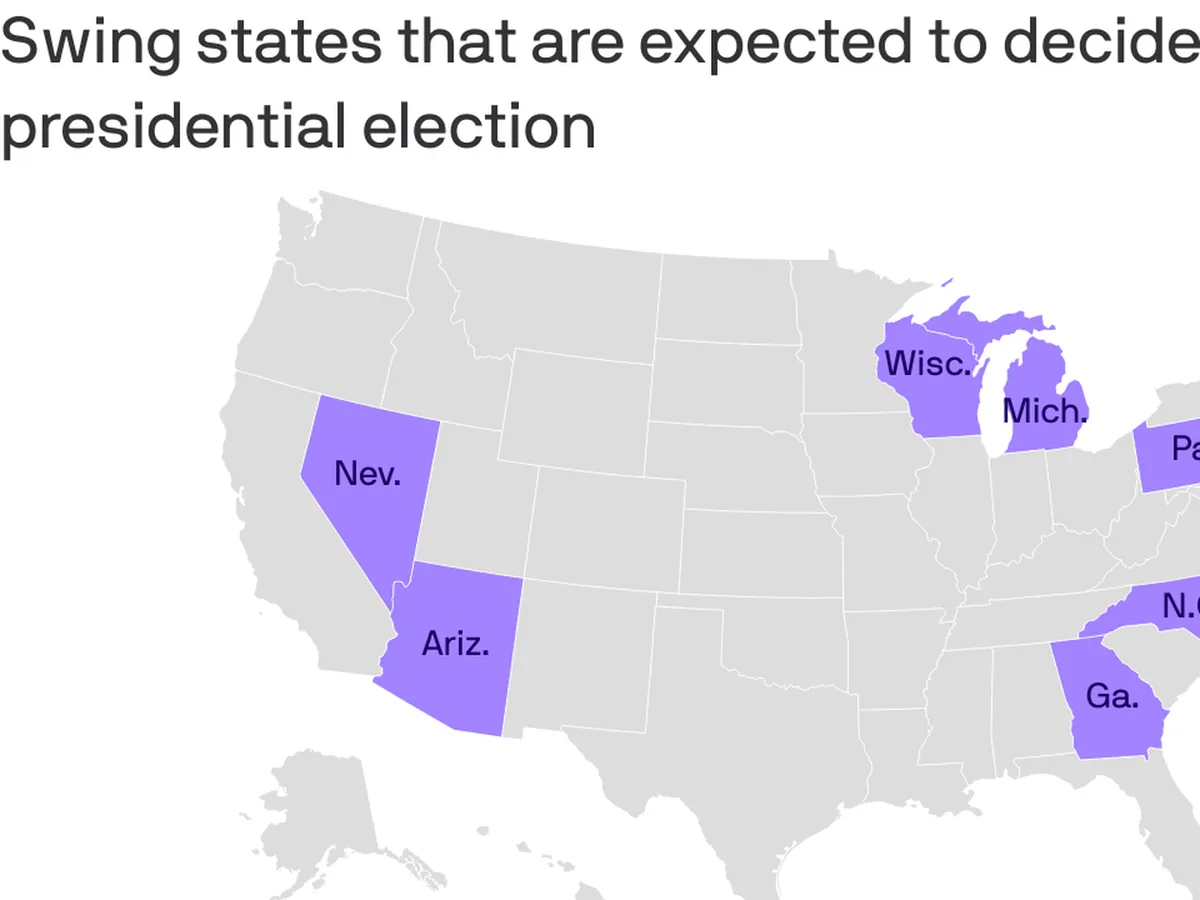Harris Leads in Polls, But Election Outcome Remains Uncertain
VP Kamala Harris holds a slim lead in national polls, but experts caution against overconfidence. The race remains close in key swing states, with polling uncertainty playing a crucial role.

As the 2024 presidential election approaches, Vice President Kamala Harris currently holds a narrow 2-point lead in national polls. This advantage has remained relatively stable since early September, but political analysts warn against drawing premature conclusions.
The United States presidential election, a complex process established by the Constitution in 1787, is determined by the Electoral College rather than the popular vote. This system, consisting of 538 electors, requires a candidate to secure 270 electoral votes to claim victory. The intricacies of this method have led to five instances in US history where a candidate won the presidency without securing the popular vote, most recently in 2016.
In the current race, seven states are considered crucial battlegrounds: Arizona, Georgia, Michigan, Nevada, North Carolina, Pennsylvania, and Wisconsin. According to recent polling averages, Harris leads in four of these states, while Donald Trump holds an advantage in three. However, experts emphasize the importance of understanding polling uncertainty and margins of error when interpreting these results.

Polling averages, while useful indicators, are not precise predictions. They aggregate multiple polls, each with its own margin of sampling error. This uncertainty is often underrepresented in media reports, which tend to focus on the average figures without considering the potential range of outcomes.
For instance, 538's polling averages since August 2024 show similar results to other national averages, with Trump leading in three key states and Harris in four. However, these averages come with confidence intervals that often overlap, making it difficult to determine a clear leader in some states.
Election forecasts, such as those provided by 538, attempt to account for this uncertainty by running thousands of simulations based on current polling data. As of September 27, 2024, their model gives Harris a 58% chance of winning the presidency. However, it's crucial to interpret these probabilities correctly and not treat them as definitive predictions.
"Election forecasts should be viewed as a range of possible outcomes, not as hard-and-fast numbers."
The closeness of the race is reminiscent of previous tight elections, such as the 1876 contest, which was decided by a single electoral vote. This historical context underscores the potential for a narrow margin in the upcoming election.
Factors beyond polling, such as voter turnout and demographic shifts, will play significant roles in determining the outcome. The introduction of exit polls in 1967 and the rise of online polling in the early 2000s have improved our understanding of voter behavior, but challenges remain in accurately predicting election results.
As November 5, 2024, approaches, it's important to remember that polls are snapshots of public opinion at a given time, not crystal balls. The "Bradley effect," which refers to discrepancies between polls and actual election outcomes, serves as a reminder of the limitations of polling data.
In conclusion, while Vice President Harris currently holds a slight edge in national polls, the 2024 presidential race remains highly competitive and unpredictable. As history has shown, from the first televised debate between Kennedy and Nixon in 1960 to the surprising outcomes of recent elections, the only certainty in American politics is uncertainty itself.


































